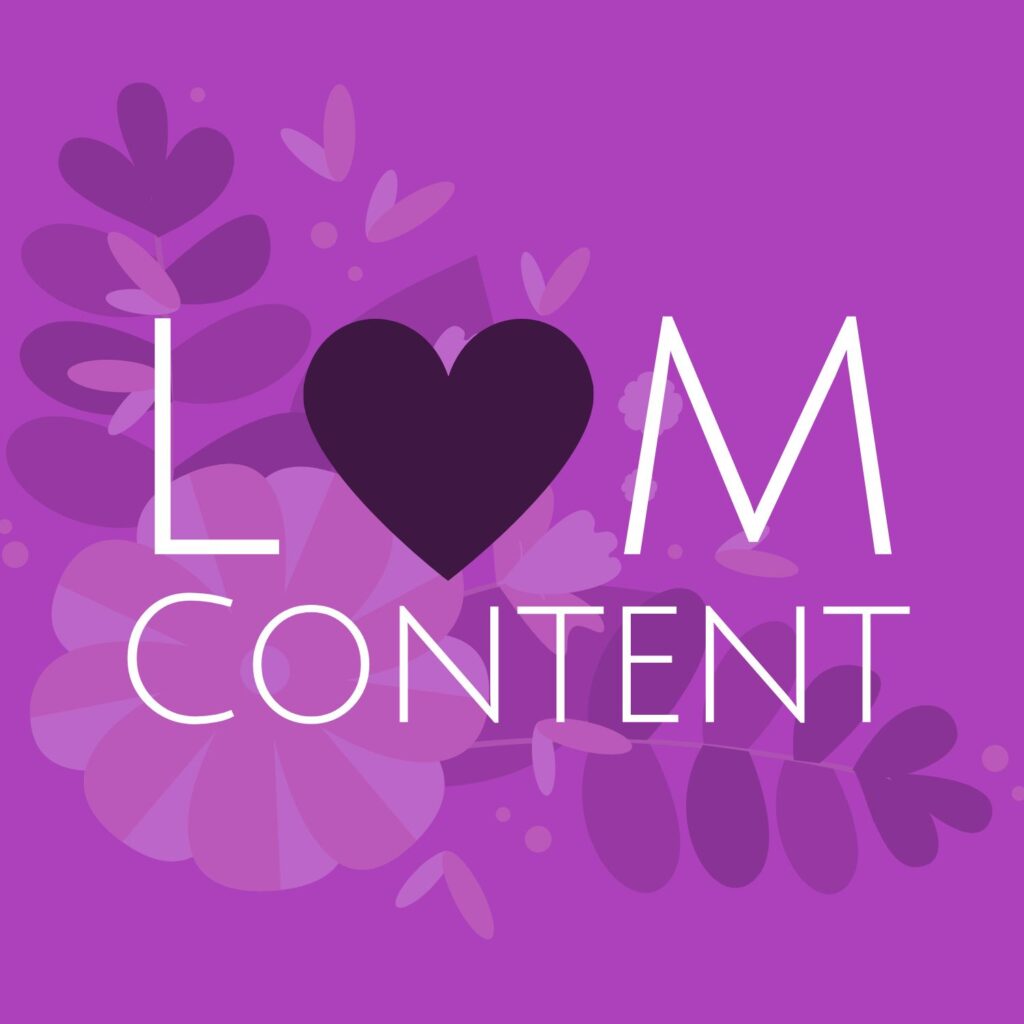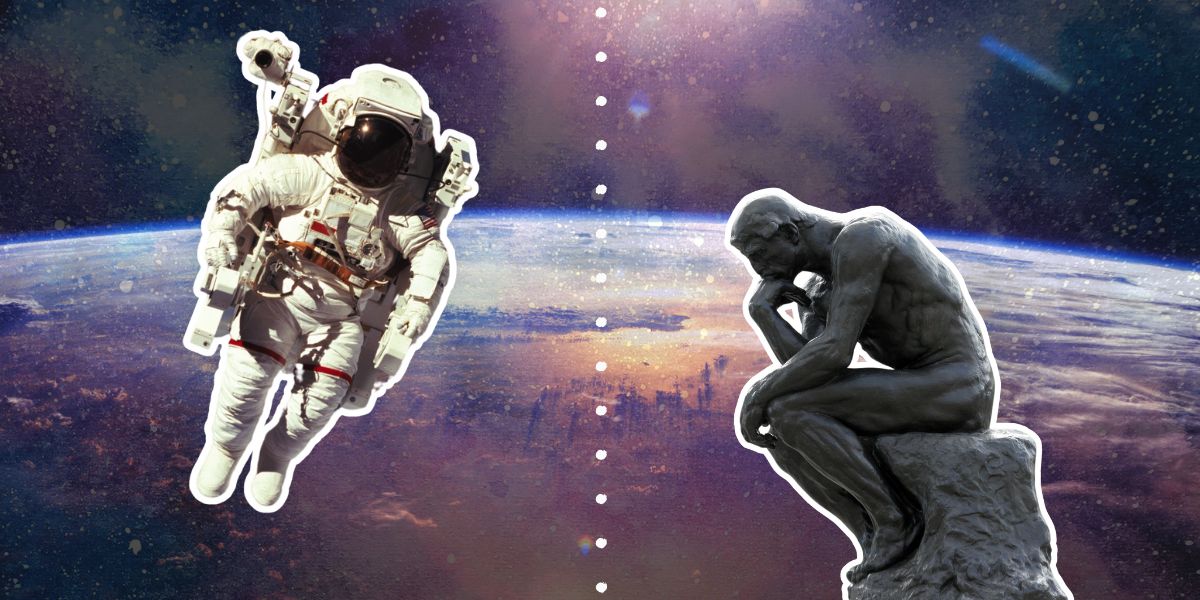Humans have always upheld belief systems. And in the absence of a deity, many turn to other frameworks to explain reality and truth.
But what happens when the dominant system fails to address some of our deepest questions about meaning, morality, values, emotion, and intuition?
This is the reality we face: Science has become our new religion.
It is revered, rarely questioned, and defended with a fervor once reserved for faith. To challenge it is to risk being labeled an agitator—or worse, an apostate.
To be clear, science has proven invaluable in achieving what we have so far. Its method has revolutionized medicine, technology, and our understanding of the physical world.
But what happens when there is no observable data? What about the problems that are too abstract, too internal, or without physical form?
Should we dismiss them as “less real” because science can’t yet validate them using current tools or frameworks? Even when they affect our inner worlds and physical reality at a fundamental level?
We often forget that science is our creation; our key to deciphering the physical universe. And like any tool, it can be misused, and it has its limits. Especially when we ask it to explain a universe that includes both the measurable and the immeasurable.
So let’s pause. Let’s dive into an analysis of science vs. logic.
First, we’ll return to the source, the thing that made science possible in the first place: logic.
The Origins of Understanding
Before science, there was philosophy: the love child of logic and consciousness.

Philosophy allowed great thinkers like Socrates, Plato, Pythagoras, and Descartes to develop frameworks of understanding without relying on tools.
Mathematics, physics, astronomy, biology, psychology, economics and other disciplines were all born from conscious abstraction, not quantification.
The lack of measurement forced them to think beyond what was immediately observable.
The scientific method wasn’t invented overnight. It emerged slowly, from the philosophical inquiries of Aristotle to the structured processes championed by Bacon and Descartes.
In the end, science was built by logicians and philosophers—not technicians.
Its foundations are logical, not mechanical. And the moment we forget that, we risk turning science from a method of discovery into a blindfold.
How close are we to reaching the point where science, like many other modern tools, shifts from helpful to handicap?
Science vs. Logic: Knowing vs. Understanding
While logic employs both deductive and inductive reasoning, science is mainly inductive; or moreover, it’s what we’re left with when deduction is put on trial.
It gives us a clear picture of what is. And this alone has taken us unimaginably far. But science doesn’t always explain what makes sense, or what should be.
Logic, by contrast, is the full system. Science is just one of its tools.
And when it comes to understanding our consciousness, morality, intuition, or any of the forces that allow us to reason in the first place, it falls short.
The result? We use our consciousness to understand everything except itself. And when it too resists measurement, we dismiss it as too abstract to study.
Worse, we treat many other forces born from consciousness as “human constructs,” as though science weren’t cut from the same cloth.
Morality. Values. Emotions. Intuition. Justice. Identity.
These are not side quests; they’re the core structure of our inner and outer worlds. They allow us to move forward in a favorable and intentional way. Yet we’ve failed them by upholding science as the sole gatekeeper of reality.
So what does that failure look like in practice?
Let’s take a look at how this has shaped our society.
Our Crisis of Meaning, Identity, and Belief
The consequences of replacing logic with science, or worse—ideology, are already palpable.
Today, virtually any idea or policy can be justified with carefully selected stats and data, sewn together into a persuasive, scientific-sounding argument.
But the urgent question isn’t can it be justified—it’s: Should it be? Does it make sense? Will it hold up in practice?
Those are questions no amount of measurable data can answer.
We must learn how to organize the data using a logical framework, identifying the clear values we want to uphold and identifying potential contradictions.
But most modern politicians won’t take the time to do this. Why? Because politics today is no longer about upholding personal values, but about remaining loyal to party beliefs.
The Slippery Science of Identity Politics
Contradictions abound, but go unnoticed. Moral standards fluctuate depending on who is speaking, or what identity group they belong to.
We no longer ask, “Does this make sense?” We ask, “Who said it?” and “What study backs it up?”
When logic is no longer our common ground, identity becomes our only compass. But identity, separated from values and logic, is fragile.

We start to define ourselves by surface-level attributes, affiliations, or victimhood status, rather than inner convictions, philosophical alignment, or moral frameworks.
And make no mistake: This is happening across the board.
We become afraid to change our minds, because changing our opinion starts to feel like erasing our identity.
What’s more, in a society where logic has been downgraded, opinion becomes confused with selfhood, and debate feels like a personal attack, not a collaborative search for truth.
We’ve created a world where our ideas don’t need to make sense. They just need to look legitimate, backed by statistics, charts, and “studies” that can be curated to support almost anything.
Reclaiming Our Compass: Logic in Practice
The science vs. logic divide transcends politics.
But its impact on global relations—the way we justify violence, division, and cycles of retribution—may be the most urgent crisis of all.
So, let’s zoom out.
Let’s look at how a flood of data, stats, and surface-level “truth” without a logical framework has affected not just what we believe, but how we live.
And most importantly, what can we do about it?
Science & Research: The Road to Discovery
Interestingly, even science has suffered from our reliance on it alone.
Today, research often chases what is measurable, fundable, politically “safe,” or convenient to certain interest groups.
Gone are the days of curiosity-driven exploration and intuitive leaps.
They’ve slowly slipped through greedy fingers, caught in the hands of institutions, lobbying, and billion-dollar funding pipelines.
We have more resources than ever. But instead of fueling restless minds in pursuit of progress, those resources serve rigid economic systems and predetermined agendas.
The result? A system that favors data accumulation and safe conclusions over paradigm shifts and true innovation.
Here’s what a logic-based framework proposes.
- Reintroduce first-principle questioning into research design.
- Prioritize coherence and long-term purpose, not just peer approval.
- Invite interdisciplinary thinkers and philosophers into hypothesis formation.
This shift wouldn’t hinder science—it would restore its integrity.
It could open the door to breakthroughs in areas science currently struggles to grasp:
consciousness, AI ethics, multi-dimensional physics, long-term ecological systems, and more.
Medicine: Treating the Person, Not Just the Disease
Our current medical system may be one of the most fractured examples of the science vs. logic crisis.
Even healthcare providers admit: they’re treating symptoms, not causes. The emotional and intuitive dimensions of healing have often been dismissed, if not outright discouraged.

Even our best doctors end up treating a disease, not a person.
The result? Patients return again and again with the same unresolved issues. Their pain, stress, and discomfort are managed but rarely understood.
This system creates a cascade of secondary complications.
No lasting answers. Just a lifetime of management.
How can we integrate logic into this scientific framework?
- Reintegrate emotional intelligence and patient-specific care into the system.
- Give space for holistic or integrative models that align with both scientific validity and human experience.
- Rethink what “health” really means beyond metrics—incorporating emotional and sensorial factors.
The result is a humane, personalized system that focuses on true healing and mental health as part of each patient’s well-being.
Education: Teaching Thought, Not Just Bundled Information
Anyone who’s attended school knows that today’s education system is focused mainly on memorization, repetition, and test scores.
Students are rewarded for having the “right” answers, not for how they reached them.
Contradiction is discouraged. And certain questions are even labeled as threatening or disrespectful.
Over time, this produces a system where abstract thinking and interdisciplinary reasoning aren’t just ignored—they’re frowned upon.
So how do we bring logic back into education?
- Reintroduce logic, deduction, and critical thinking across every subject.
- Reward students not just for what they believe, but for how they form their values.
- Teach students how to trace ideas back to their source, detect contradictions, and build coherent perspectives.

Let’s equip the next generation with the tools to build their own beliefs, not just memorize conclusions. Let’s help them master life without relying on slogans, trends, or tribal cues.
Personal Development: An Identity Built on Logic, Not Reaction
A major problem we touched on earlier was our society’s inability to understand themselves beyond group narratives, affiliations, or emotional responses.
Our opinions have fused with our identity, so disagreement feels like erasure.
This brings us back full-circle to the issue of personal development.
How do we learn who we really are in a modern, pre-packaged world?
And how can we give space to debate and challenging societal norms in a safe and productive way?
What does a logic-based shift look like? We must encourage individuals to:
- Build core values that align with their identity, through reflection and reasoning.
- Test their own beliefs and ideas/policies they support for internal consistency.
- View emotion as a signal that something has resonated with them, not as a definition.
- Evolve without viewing internal shifts as self-betrayal.
Individuals who are sure of their own identity and ground it in logic instead of loyalty to a group are more resilient, flexible, and adaptable.
Let’s avoid pre-packaged, downloaded identities and give ourselves a chance to be discovered.
The Takeaway
I hope this deeper reflection on the science vs. logic crisis helps individuals across all institutions identify core inconsistencies, challenge definitions, and propose new processes that complement science with logic.
Science was never meant to be the final word. It’s a tool for discovery, not a philosophy for living. And logic is what gives that tool direction.
Where science shows us what is, logic helps us ask why it matters, what it leads to, and whether it makes sense in the broader picture of human experience.
Together, logic and science form a complete method of understanding. Separated, they risk becoming either blind precision or unfocused idealism.
If we want to build systems that are not only effective but coherent, humane, and enduring, we must stop choosing between heart and mind, data and meaning, objectivity and depth.
So, who wins in a battle of ‘science vs. logic’? The truth is, we definitely need both. But one must lead the way.
And that role belongs to logic.


Leave a Reply